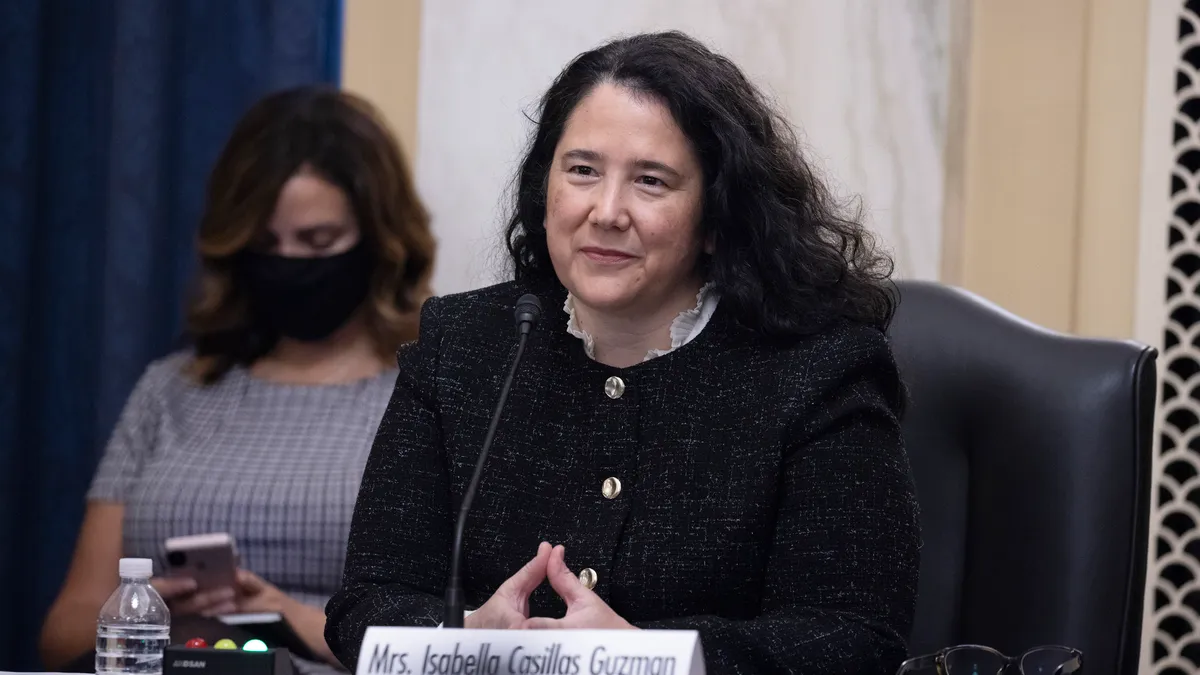Dive Brief:
- The Small Business Administration’s Economic Injury Disaster Loan (EIDL) program dispersed nearly $3.7 billion to ineligible recipients after the agency failed to check borrowers' identifying details against the Treasury Department’s "Do Not Pay" (DNP) database, according to a report released last week by the SBA’s inspector general.
- SBA Inspector General Hannibal Ware said the agency’s lack of controls led to 75,180 EIDL loans — worth more than $3.1 billion in total — and 117,135 emergency EIDL grants totaling over $550 million, being disbursed to "potentially ineligible recipients."
- The report is the latest in several months to highlight a lack of checks and balances in the SBA’s handling of the EIDL program, which distributed $210 billion in loans and grants to struggling businesses last year amid the pandemic.
Dive Insight:
The Treasury’s DNP system is the designated source of centralized data and analytic services to help agencies verify eligibility and to identify and prevent fraud, waste and abuse of federal funds, the IG’s report said.
Ware, who in July called for closer oversight of the EIDL program, said last week’s report shows an "unprecedented amount of fraud" was present in the program, which launched in 2019.
The IG’s office suggested the SBA amend several practices to strengthen its oversight of the program:
- Implement prepayment and pre-award procedures, and use the batch match or continuous monitoring functions available in Treasury’s DNP system to identify potentially ineligible applicants before disbursing the program’s funds.
- Use the Treasury’s DNP analysis to systemically flag recipients who were found in the DNP system and not previously reported by the IG. Further, SBA should review the applications and determine whether they are deemed ineligible. If the applicant is deemed ineligible, recover any disbursed funds, and flag the application as ineligible.
- For all grants identified and flagged as potentially ineligible, include those transactions in SBA’s 2021 improper payments estimation process.
In responses included in the report, the SBA said it agreed with the IG’s first two recommendations and disagreed with the last.
"The Draft Memo findings state that only two percent of the COVID-19 EIDLs and EIDL Advances identified were a match in some way on the various DNP lists. Though a DNP match may be an indicator of a potential improper payment, it is not a guarantee," the agency said in its response. "Rather it is an identifying flag that alerts trained SBA staff to conduct additional reviews on the flagged files."
Flagged files are not necessarily ineligible and it would be inaccurate to assume so without a proper review, the agency added.
"Incorporating the DNP rates on top of our current [improper payment] rates would erroneously inflate our IP rate by 2 percent," the agency said.
An IG report released in October concluded the SBA paid $4.5 billion more than it should have when it disbursed EIDL grants to small businesses amid the start of the pandemic last year.
The October report said the agency failed to establish a proper internal control environment by not requiring sole proprietors or independent contractors to disclose employer identification numbers (EINs) when applying for the grants, and asked for Social Security numbers instead.
SBA Administrator Isabella Casillas Guzman, who took over the agency in March, said during a hearing in October that the SBA lacked "guardrails" under the Trump administration, adding that she has since beefed up the agency’s fraud controls.
The SBA said last week it started checking DNP records in April, more than a year after the program began.
SBA spokesperson Han Nguyen placed the blame on the previous administration.
"We agree with the SBA Office of Inspector General that the Trump administration should have applied this risk management tool, and, therefore, the SBA has done just that under the Biden-Harris administration," he said in a statement to The New York Times.











